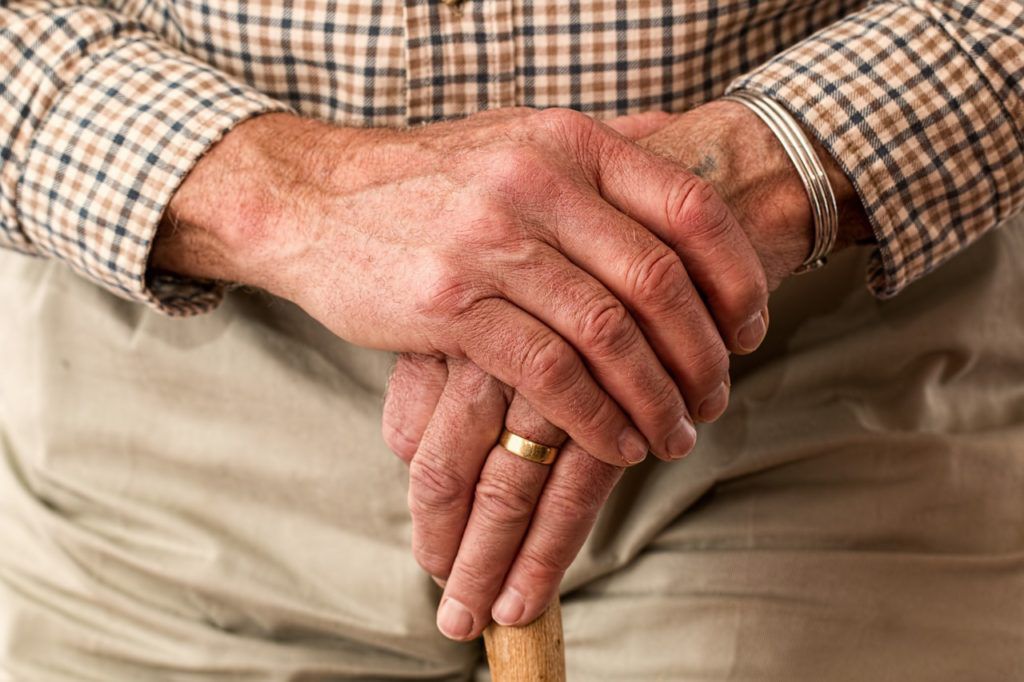It can be tricky navigating the landmines associated with helping aging parents. As they age, they still remain fiercely independent, and giving up that independence can be tough. We have been fortunate that our aging parents have had family members close by. But we also owe a debt of gratitude to neighbors who have helped keep us informed. The simplest gestures from them mean a lot to us.
We’ve tried to be conscientious about Grandma’s safety, and so has she. She installed a security system with a wearable panic button, motion sensors on the outside lights, and sturdy railings near the stairs. She also got rid of the throw rugs that might be a tripping hazard. As our Grandma’s health and mobility have declined, we’ve taken extra steps to be sure her neighbors are willing to provide extra eyes and ears. Despite every precaution, the dreaded fall eventually happened. Fortunately, she was able to alert a neighbor by calling for help.

Each health setback for an aging parent requires a game of cat and mouse to try to anticipate and prevent the next problem. Sometimes we are successful. Sometimes we can only mitigate the seriousness of an issue. We have taken precautions like giving an extra housekey to a trusted neighbor in the event that emergency response teams need to access a locked house. We’ve also made sure neighbors have contact information so that they can reach us. They know our names and we check in with them any time she’s away from home for an extended period. This helps us keep lines of communication open so they feel comfortable calling us if they see something amiss.
If you have an elderly neighbor whose family members don’t live locally, there is a lot you can do to appropriately assist to help them remain independent. Sometimes you’ll be the first to notice if something is not right, and you can step in to help.
While this list is not exhaustive, it may give you some ideas for things you can do to help an aging neighbor or family member. Start by establishing communication with your neighbor’s other family members so that they know whom to contact if they ever have concerns. Be certain your offers of help are appropriate and don’t infringe on your neighbor’s privacy. Don’t be embarrassed to let family members know if watching out for their aging family member gets to be burdensome for you, or if you have concerns about a neighbor’s health or safety. Family members sometimes have difficulty knowing when to step in, and your expression of concern may be the signal they are waiting for.
Things You Can Do To Help Aging Neighbors and Family Members:
- Move their garbage or recycling bins to the curb and back
- Gather and deliver mail or newspapers
- Offer to provide transportation to a doctor’s appointment, church, or the grocery store
- Invite them to join you for Sunday dinner or a family meal
- Help them arrange to have medications delivered from a local pharmacy
- Unload groceries, especially heavy or bulky items like water softener salt
- Assist with snow removal
- Help with changing light bulbs
- Take them along when you go grocery shopping
- Help with yard work or suggest a great lawn care company you trust
- Help change their furnace filters or smoke detector batteries
- Help put salt in the water softener
- Videotape them sharing favorite memories and family stories, or gift a copy of a journal so they can write down their favorite memories.
- Take them along on outings–social isolation is a big problem for many seniors
- Help them arrange for someone to hang Christmas lights or seasonal outdoor decorations
- Give their knees a break and help with planting bedding plants
- Give them your contact information and let them know they can call you any time they are frightened or have a concern they need help with
- Cook an extra portion of a meal and take it over in a disposable or recyclable container
- Watch carefully for changes: Mail left in the mailbox, Newspapers that haven’t been picked up, blinds that haven’t been opened can sometimes indicate help is needed.
- Observe. You might be the first to notice something like bruises from a fall, erratic driving, or other signs that your senior neighbor is in need of extra assistance. If you aren’t comfortable notifying a family member, contact aging and adult services in your community.

